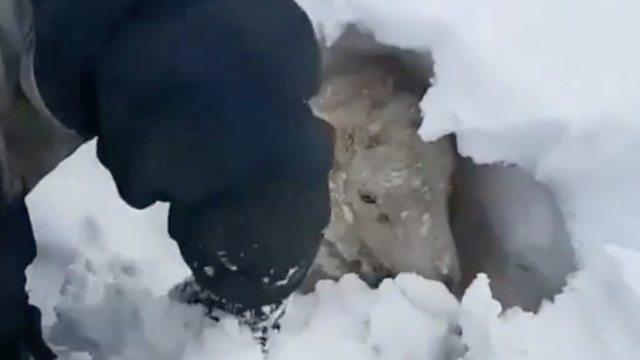UK heatwave: Welsh farmers 'fighting to survive'
- Published
- comments
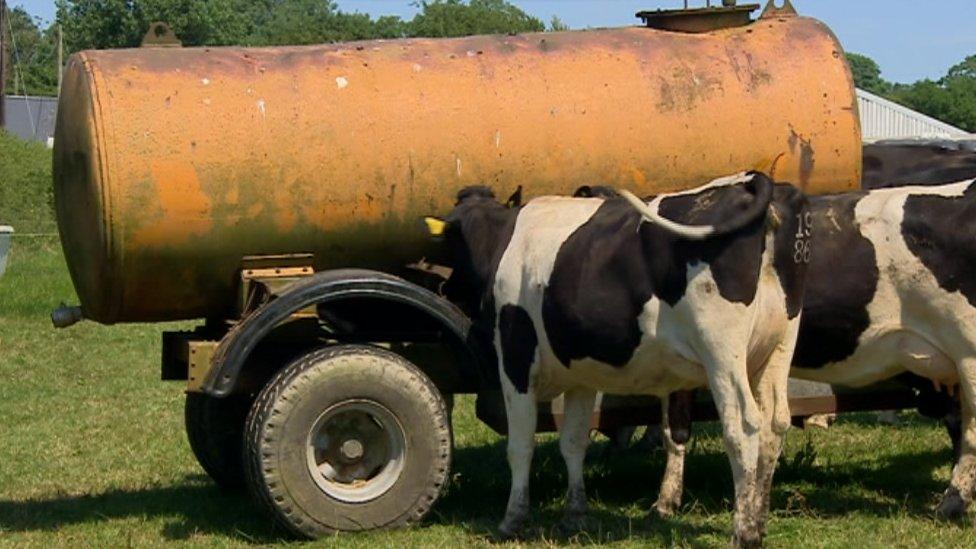
Farmers have brought in emergency water tankers
Farmers in Wales are warning that they could be fighting to survive if the summer's dry weather continues.
Many say the grass they feed their cows effectively stopped growing weeks ago, prompting concerns about the food available to herds in the longer term.
The weeks of scorching weather follow heavy snow storms in late winter.
NFU Cymru has also warned farmers that they have "a duty of care" to animals, as forecasts predict two more weeks of soaring temperatures.
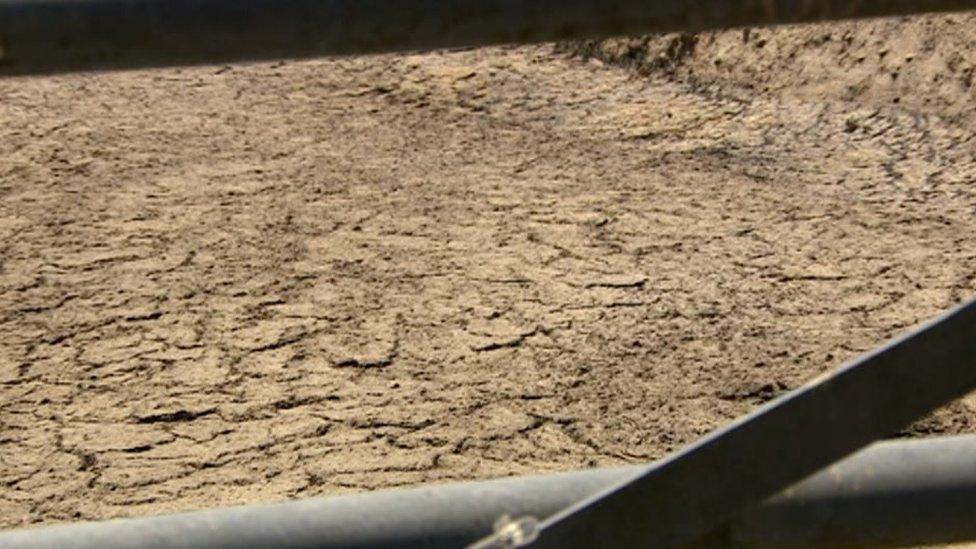
Scorched earth on a farm in northern Pembrokeshire
The warm weather reached a record high of 32.6C in Porthmadog in Gwynedd at the end of June and the heatwave has continued this week.
NFU Cymru President John Davies said he had heard farmers were already using their winter supplies of fodder because the lack of rain had stunted grass growth while the "intense" heat was "burning off crops".
How the 1976 heatwave affected Wales
Mr Davies said: "We've heard of farmers who are already using their winter supplies of fodder to feed livestock and with fodder already at a premium this could become a real problem later in the year."
The union has now relaunched its free fodder bank service to help members find animal feed or sell any surplus.
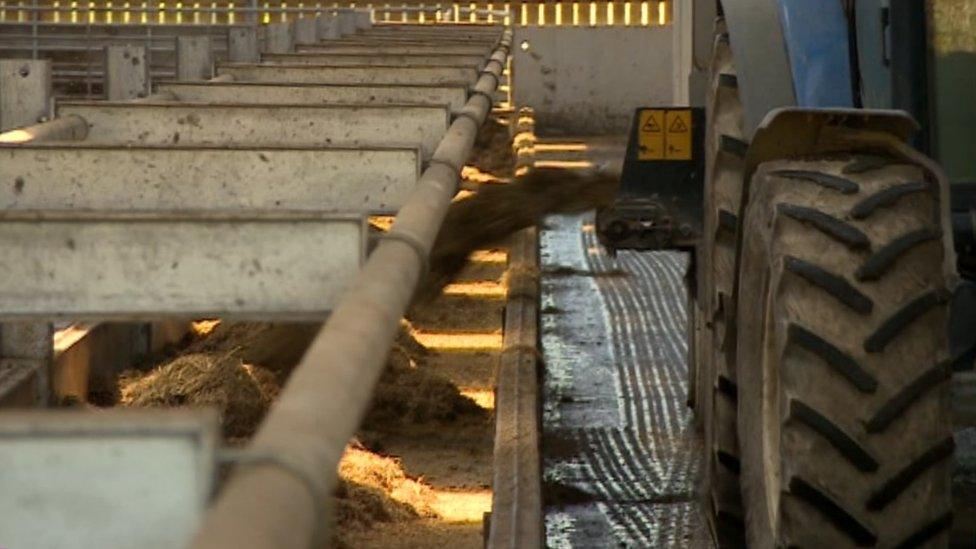
Some farmers are having to feed animals on winter stocks
The union has also had reports of many farm wells, ponds, ditches and some boreholes running dry.
Some farmers are opting to dig new boreholes or in extreme cases, pay to bring in extra water.
Gareth Richards, chair of NFU Cymru's milk board, said the weather could have an "unprecedented" impact on the dairy industry.
Mr Richards, who farms in Pembrokeshire, said: "For the majority of dairy farmers it's just a case of surviving day by day to get through, and hopefully the rains will come."
Aled Rees, who runs an organic dairy farm in north Pembrokeshire, said in 20 years of farming he had never experienced conditions like it.
"It's the loss of milk to start off with because in this weather the cows aren't milking as they should," he said.
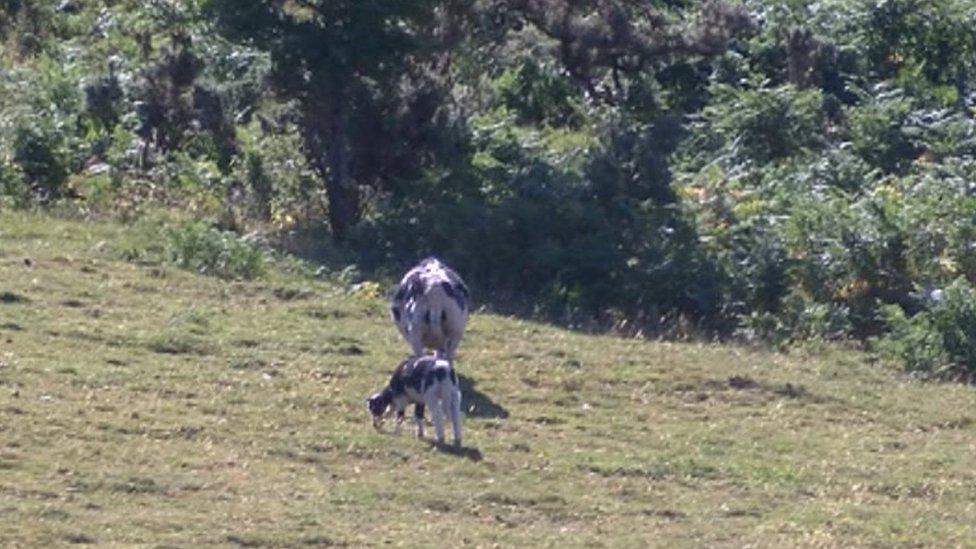
Slim pickings as grazing dries up
"They've dropped around three litres of milk per head, so there's a financial cost to that because there's a loss of income."
Mr Rees estimates that it has cost him around £13,000 more in the last month because he has had to buy in additional organic feed.
"Because we're already rationing it, we have enough grass in the fields left to last just under two weeks," he said.
"But after that it really needs to rain or I'm not sure what we're going to do."
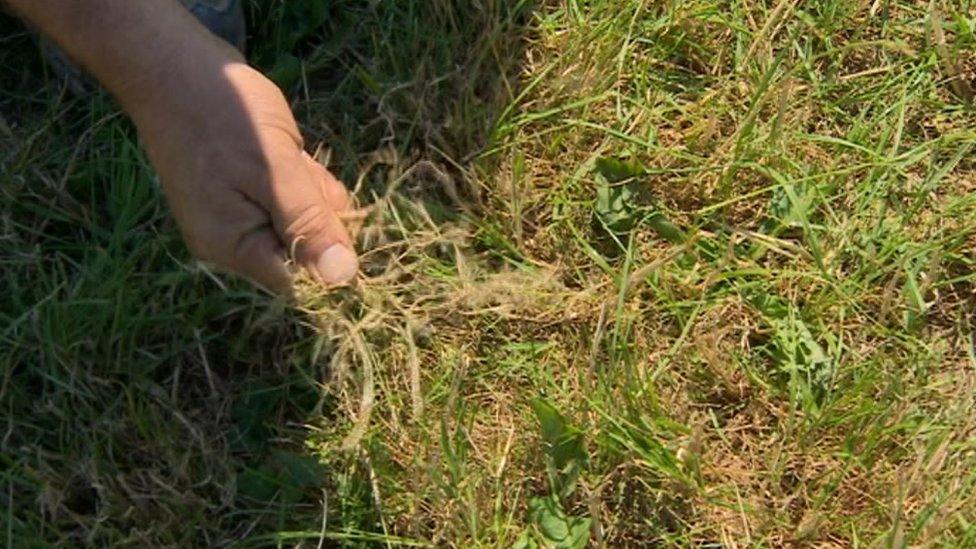
A farmer checks his dried-out grass
Meanwhile NFU Cymru has warned that members should follow "the highest possible standards of husbandry" for their animals.
"The priority for livestock farms will be protecting the welfare of their animals, putting plans in place to ensure these animals' needs are met, making sure they have access to fresh water and shade from the sun," said Mr Davies.
- Published2 July 2018

- Published3 July 2018
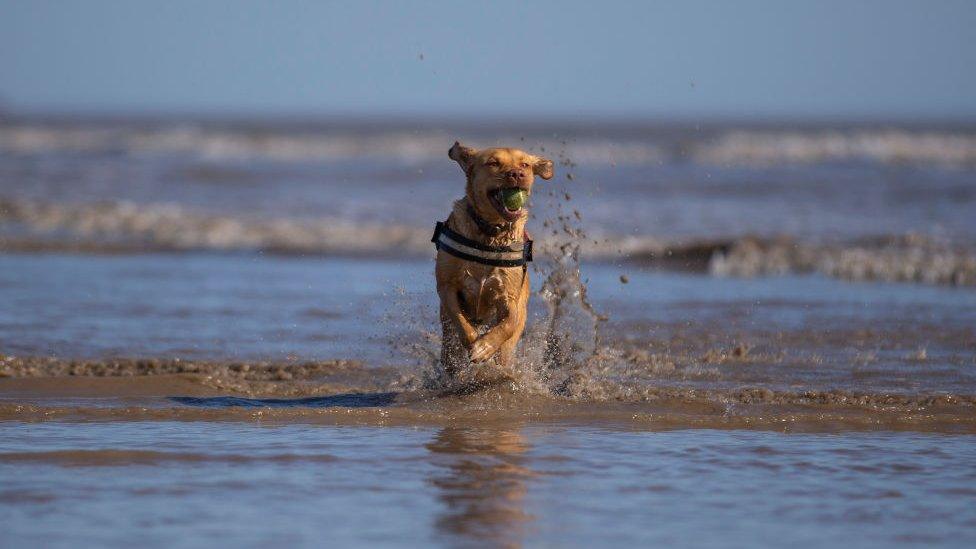
- Published29 June 2018

- Published4 March 2018
